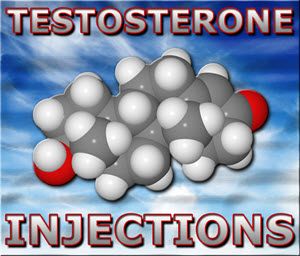Introduction to Growth Failure in SGA Children
Growth failure in children born small for gestational age (SGA) is a significant concern that can lead to short stature and other developmental issues. SGA refers to a birth weight or length that is below the 10th percentile for gestational age. While many SGA children catch up in growth within the first two years of life, a subset continues to exhibit growth failure, necessitating medical intervention.
Understanding Genotropin
Genotropin, a recombinant human growth hormone (rhGH), has emerged as a pivotal treatment option for children with growth disorders, including those born SGA. Manufactured by Pfizer, Genotropin mimics the natural growth hormone produced by the pituitary gland, which is essential for growth and development. Its role in stimulating growth in children who are not growing at a normal rate has been extensively studied and documented.
Mechanism of Action
Genotropin works by binding to growth hormone receptors on the surface of cells, triggering a cascade of intracellular signals that promote growth. It stimulates the production of insulin-like growth factor 1 (IGF-1), which plays a crucial role in bone and tissue growth. For children born SGA, Genotropin helps to bridge the gap between their actual height and their genetic potential, offering hope for improved stature and quality of life.
Clinical Evidence Supporting Genotropin Use
Numerous clinical trials have demonstrated the efficacy of Genotropin in treating growth failure in SGA children. A pivotal study published in the *Journal of Clinical Endocrinology & Metabolism* showed that children treated with Genotropin experienced significant increases in height compared to those receiving a placebo. The treatment was well-tolerated, with side effects being generally mild and transient.
Administration and Dosage
Genotropin is administered via subcutaneous injection, typically once daily. The dosage is tailored to the individual needs of the child, based on factors such as age, weight, and growth response. Regular monitoring by a healthcare provider is essential to adjust the dosage and ensure optimal growth outcomes.
Long-term Benefits and Considerations
The long-term benefits of Genotropin in SGA children extend beyond increased height. Improved self-esteem, better social integration, and enhanced overall well-being are among the reported advantages. However, it is important to consider potential long-term risks, such as the development of type 2 diabetes or cardiovascular issues, which require ongoing medical supervision.
Safety Profile and Side Effects
Genotropin is generally safe, with most side effects being mild and manageable. Common side effects include injection site reactions, headaches, and muscle or joint pain. More serious, but rare, side effects can include increased intracranial pressure or slipped capital femoral epiphysis. It is crucial for parents and caregivers to be aware of these potential risks and to communicate any concerns with their healthcare provider.
Conclusion: The Role of Genotropin in Enhancing Growth in SGA Children
Genotropin represents a significant advancement in the management of growth failure in children born SGA. By providing a targeted approach to stimulate growth, it offers a promising solution for families seeking to improve their child's stature and quality of life. As with any medical treatment, a thorough evaluation by a healthcare professional is essential to determine if Genotropin is the right choice for a particular child.
In the context of American males, where societal expectations often place a high value on physical stature, the availability of effective treatments like Genotropin can be particularly impactful. By addressing growth failure early, we can help these children reach their full potential, both physically and emotionally.
Contact Us Today For A Free Consultation

- Unlocking the Potential of Genotropin for Metabolic Health in American Men [Last Updated On: February 20th, 2025] [Originally Added On: February 20th, 2025]
- Unveiling the Potential of Genotropin: A Comprehensive Review of Clinical Trials and Outcomes [Last Updated On: March 12th, 2025] [Originally Added On: March 12th, 2025]
- Genotropin's Impact on Lipid Profiles in Men with Growth Hormone Deficiency [Last Updated On: March 14th, 2025] [Originally Added On: March 14th, 2025]
- Exploring the Efficacy of Genotropin in Managing Idiopathic Short Stature in American Males [Last Updated On: March 15th, 2025] [Originally Added On: March 15th, 2025]
- Unveiling the Impact of Genotropin on Growth Hormone Deficiency and Sleep Disorders in American Males [Last Updated On: March 16th, 2025] [Originally Added On: March 16th, 2025]
- Exploring the Effects of Genotropin on Lung Function in American Males with Growth Hormone Deficiency [Last Updated On: March 16th, 2025] [Originally Added On: March 16th, 2025]
- Exploring the Role of Genotropin in Treating Growth Hormone Deficiency and Osteoporosis in American Males [Last Updated On: March 16th, 2025] [Originally Added On: March 16th, 2025]
- Exploring the Impact of Genotropin on Exercise Capacity in Growth Hormone Deficient Men [Last Updated On: March 16th, 2025] [Originally Added On: March 16th, 2025]
- Exploring the Psychological Landscape of Genotropin Therapy: Overcoming Barriers for American Males [Last Updated On: March 16th, 2025] [Originally Added On: March 16th, 2025]
- Exploring the Impact of Genotropin on Bladder Function in Men with Growth Hormone Deficiency [Last Updated On: March 16th, 2025] [Originally Added On: March 16th, 2025]
- Genotropin in American Males: Pharmacokinetics, Pharmacodynamics, and Clinical Implications [Last Updated On: March 18th, 2025] [Originally Added On: March 18th, 2025]
- Genotropin's Cognitive Benefits in Growth Hormone Deficient American Males: A Review [Last Updated On: March 18th, 2025] [Originally Added On: March 18th, 2025]
- Genotropin's Impact on Growth Disorders in American Males: Efficacy and Applications [Last Updated On: March 18th, 2025] [Originally Added On: March 18th, 2025]
- Genotropin's Role in Enhancing Quality of Life for American Males with Short Bowel Syndrome [Last Updated On: March 19th, 2025] [Originally Added On: March 19th, 2025]
- Genotropin Therapy Transition for American Males: From Pediatric to Adult Care [Last Updated On: March 19th, 2025] [Originally Added On: March 19th, 2025]
- Debunking Myths: Understanding Genotropin Therapy for American Males [Last Updated On: March 20th, 2025] [Originally Added On: March 20th, 2025]
- Genotropin Therapy for Growth Hormone Deficiency in Elderly Men: Benefits and Management [Last Updated On: March 20th, 2025] [Originally Added On: March 20th, 2025]
- Genotropin's Impact on Cardiovascular Health in American Males with Growth Hormone Deficiency [Last Updated On: March 20th, 2025] [Originally Added On: March 20th, 2025]
- Genotropin Therapy: Enhancing Growth and Quality of Life in American Males [Last Updated On: March 21st, 2025] [Originally Added On: March 21st, 2025]
- Genotropin: Revolutionizing Hypopituitarism Treatment for American Males [Last Updated On: March 21st, 2025] [Originally Added On: March 21st, 2025]
- Strategies to Enhance Genotropin Therapy Compliance in American Males [Last Updated On: March 21st, 2025] [Originally Added On: March 21st, 2025]
- Genotropin Therapy for American Males: Benefits, Side Effects, and Management Strategies [Last Updated On: March 21st, 2025] [Originally Added On: March 21st, 2025]
- Genotropin's Impact on Body Composition in American Males with Growth Hormone Deficiency [Last Updated On: March 21st, 2025] [Originally Added On: March 21st, 2025]
- Genotropin Therapy Enhances Quality of Life in American Males with GHD [Last Updated On: March 22nd, 2025] [Originally Added On: March 22nd, 2025]
- Genotropin's Impact on Turner Syndrome: Enhancing Life for American Males [Last Updated On: March 23rd, 2025] [Originally Added On: March 23rd, 2025]
- Genotropin: A Key Treatment for Growth Hormone Deficiency Due to Craniopharyngioma [Last Updated On: March 24th, 2025] [Originally Added On: March 24th, 2025]
- Genotropin's Impact on Reproductive Health in American Males with Growth Hormone Deficiency [Last Updated On: March 24th, 2025] [Originally Added On: March 24th, 2025]
- Genotropin's Efficacy in Managing GHD and Diabetes in American Males [Last Updated On: March 24th, 2025] [Originally Added On: March 24th, 2025]
- Genotropin: Cost-Effective GHD Treatment for American Males [Last Updated On: March 24th, 2025] [Originally Added On: March 24th, 2025]
- Genotropin: Enhancing Life for American Males Post-Radiation GHD Treatment [Last Updated On: March 24th, 2025] [Originally Added On: March 24th, 2025]
- Genotropin's Role in Treating Growth Hormone Deficiency in Childhood Cancer Survivors [Last Updated On: March 24th, 2025] [Originally Added On: March 24th, 2025]
- Genotropin Enhances Immune Function in American Men with Growth Hormone Deficiency [Last Updated On: March 24th, 2025] [Originally Added On: March 24th, 2025]
- Genotropin: Enhancing Quality of Life in HIV-Positive Males with Growth Hormone Deficiency [Last Updated On: March 24th, 2025] [Originally Added On: March 24th, 2025]
- Genotropin's Impact on Hearing in American Males with Growth Hormone Deficiency [Last Updated On: March 25th, 2025] [Originally Added On: March 25th, 2025]
- Genotropin: Treating Growth Hormone Deficiency in American Males with Pituitary Tumors [Last Updated On: March 25th, 2025] [Originally Added On: March 25th, 2025]
- Genotropin's Impact on Dental Health in American Males with Growth Hormone Deficiency [Last Updated On: March 25th, 2025] [Originally Added On: March 25th, 2025]
- Genotropin Enhances Exercise Capacity in American Men with Growth Hormone Deficiency [Last Updated On: March 25th, 2025] [Originally Added On: March 25th, 2025]
- Genotropin's Impact on Growth Hormone Deficiency in American Males: Benefits and Considerations [Last Updated On: March 25th, 2025] [Originally Added On: March 25th, 2025]
- Genotropin Enhances Skin Health in American Males with Growth Hormone Deficiency [Last Updated On: March 25th, 2025] [Originally Added On: March 25th, 2025]
- Genotropin Therapy: Enhancing Growth in American Boys with Hormone Deficiency [Last Updated On: March 25th, 2025] [Originally Added On: March 25th, 2025]
- Genotropin Therapy for American Males: Nutritional Strategies for Optimal Growth [Last Updated On: March 26th, 2025] [Originally Added On: March 26th, 2025]
- Genotropin: Treating Growth Hormone Deficiency in American Males Post-TBI [Last Updated On: March 26th, 2025] [Originally Added On: March 26th, 2025]
- Personalizing Genotropin Therapy for American Males with Growth Hormone Deficiency [Last Updated On: March 26th, 2025] [Originally Added On: March 26th, 2025]
- Managing Growth Hormone Deficiency Transition with Genotropin in American Males [Last Updated On: March 26th, 2025] [Originally Added On: March 26th, 2025]
- Genotropin's Impact on Hair Growth in American Men with Growth Hormone Deficiency [Last Updated On: March 27th, 2025] [Originally Added On: March 27th, 2025]
- Genotropin Therapy for Growth Hormone Deficiency in American Males with Sickle Cell Disease [Last Updated On: March 27th, 2025] [Originally Added On: March 27th, 2025]
- Genotropin Therapy for American Males with Growth Hormone Deficiency and Epilepsy [Last Updated On: March 27th, 2025] [Originally Added On: March 27th, 2025]
- Genotropin: Enhancing Growth and Life Quality in American Males with GHD and ADHD [Last Updated On: March 27th, 2025] [Originally Added On: March 27th, 2025]
- Strategies to Boost Adherence to Genotropin Therapy in American Adolescent Males [Last Updated On: March 27th, 2025] [Originally Added On: March 27th, 2025]
- Genotropin Enhances Sleep Quality in American Men with Growth Hormone Deficiency [Last Updated On: March 27th, 2025] [Originally Added On: March 27th, 2025]
- Genotropin Therapy in American Males: Long-Term Benefits and Essential Follow-Up Care [Last Updated On: March 27th, 2025] [Originally Added On: March 27th, 2025]
- Genotropin's Impact on Emotional Well-Being in Growth Hormone Deficient American Boys [Last Updated On: March 27th, 2025] [Originally Added On: March 27th, 2025]
- Genotropin Improves Vision in American Men with Growth Hormone Deficiency: Clinical Insights [Last Updated On: March 27th, 2025] [Originally Added On: March 27th, 2025]
- Genotropin's Impact on Growth Hormone Deficiency in American Males with Cystic Fibrosis [Last Updated On: March 28th, 2025] [Originally Added On: March 28th, 2025]
- Genotropin's Efficacy in Treating GHD in American Males with Rheumatoid Arthritis [Last Updated On: March 28th, 2025] [Originally Added On: March 28th, 2025]
- Genotropin's Impact on Growth Hormone Deficiency in American Males with Down Syndrome [Last Updated On: March 28th, 2025] [Originally Added On: March 28th, 2025]
- Genotropin: Managing Growth Hormone Deficiency and Asthma in American Males [Last Updated On: March 28th, 2025] [Originally Added On: March 28th, 2025]
- Genotropin's Impact on Kidney Function in American Males with Growth Hormone Deficiency [Last Updated On: March 28th, 2025] [Originally Added On: March 28th, 2025]
- Genotropin's Role in Treating GHD in American Males with ASD: Efficacy and Considerations [Last Updated On: March 28th, 2025] [Originally Added On: March 28th, 2025]
- Overcoming Psychological Barriers to Genotropin Therapy in American Males [Last Updated On: March 30th, 2025] [Originally Added On: March 30th, 2025]
- Genotropin Therapy for Growth Hormone Deficiency in American Males with Thyroid Disorders [Last Updated On: April 1st, 2025] [Originally Added On: April 1st, 2025]
- Genotropin's Role in Managing GHD and CFS in American Males: Efficacy and Implications [Last Updated On: April 1st, 2025] [Originally Added On: April 1st, 2025]
- Genotropin: A Promising Treatment for Growth Hormone Deficiency in Obese American Males [Last Updated On: April 1st, 2025] [Originally Added On: April 1st, 2025]
- Genotropin Therapy: Managing Growth Hormone Deficiency in American Males [Last Updated On: April 4th, 2025] [Originally Added On: April 4th, 2025]
- Genotropin's Efficacy in Treating GHD in Fibromyalgia Patients: A Comprehensive Review [Last Updated On: April 5th, 2025] [Originally Added On: April 5th, 2025]
- Genotropin Enhances Lung Function in Growth Hormone Deficient American Males: A Study [Last Updated On: April 6th, 2025] [Originally Added On: April 6th, 2025]
- Enhancing Genotropin Therapy Outcomes Through Effective Communication Strategies for American Males [Last Updated On: April 9th, 2025] [Originally Added On: April 9th, 2025]
- Genotropin's Impact on Liver Function in American Males with Growth Hormone Deficiency [Last Updated On: April 9th, 2025] [Originally Added On: April 9th, 2025]
- Genotropin's Role in Managing Growth Hormone Deficiency in American Males with MS [Last Updated On: April 9th, 2025] [Originally Added On: April 9th, 2025]
- Genotropin Therapy for GHD in American Males: Ethical Considerations and Responsibilities [Last Updated On: April 9th, 2025] [Originally Added On: April 9th, 2025]
- Genotropin: A Dual Therapy for GHD and Osteoporosis in American Males [Last Updated On: April 10th, 2025] [Originally Added On: April 10th, 2025]
- Genotropin's Impact on Joint Health in American Men with Growth Hormone Deficiency [Last Updated On: April 10th, 2025] [Originally Added On: April 10th, 2025]
- Genotropin's Positive Impact on Digestive Health in American Males with GHD [Last Updated On: April 11th, 2025] [Originally Added On: April 11th, 2025]
- Navigating Cultural Barriers to Genotropin Therapy for American Males [Last Updated On: April 11th, 2025] [Originally Added On: April 11th, 2025]
- Genotropin: Treating Growth Hormone Deficiency and Anemia in American Males [Last Updated On: April 11th, 2025] [Originally Added On: April 11th, 2025]
- Genotropin Use in American Males with GHD and Hypertension: Benefits and Risks [Last Updated On: April 12th, 2025] [Originally Added On: April 12th, 2025]
- Genotropin's Role in Treating GHD and Improving Sleep in American Males [Last Updated On: April 14th, 2025] [Originally Added On: April 14th, 2025]
- Genotropin's Impact on Bladder Function in American Men with Growth Hormone Deficiency [Last Updated On: April 15th, 2025] [Originally Added On: April 15th, 2025]
- Genotropin's Impact on GHD and Migraines in American Males: Efficacy and Safety [Last Updated On: April 16th, 2025] [Originally Added On: April 16th, 2025]
- Genotropin Therapy: Enhancing Outcomes with Family Support and Technology [Last Updated On: April 17th, 2025] [Originally Added On: April 17th, 2025]
Word Count: 568



















